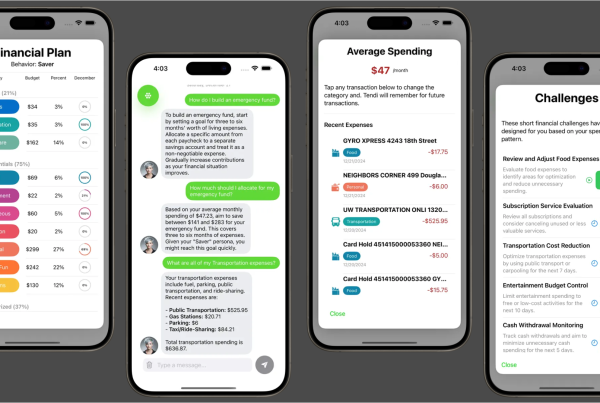The financial technology (fintech) industry is rapidly evolving, and one of the most exciting advancements is the integration of conversational AI. This technology is transforming how consumers interact with financial services, providing personalized experiences, enhancing customer support, and streamlining operations. Here’s an in-depth look at how conversational AI is revolutionizing fintech and what it means for the future of finance.
What is Conversational AI?
Conversational AI refers to technologies that enable machines to understand, process, and respond to human language in a natural and engaging manner. This includes chatbots, virtual assistants, and voice-activated services powered by artificial intelligence and natural language processing (NLP). These tools can interact with users through text or speech, providing a seamless and intuitive user experience.
Benefits of Conversational AI in Fintech
- Enhanced Customer Support Conversational AI can handle a wide range of customer inquiries, from account balances and transaction histories to more complex issues like fraud detection and loan applications. This 24/7 availability ensures that customers receive timely support without long wait times, improving overall customer satisfaction.
- Personalized Financial Advice AI-powered chatbots and virtual assistants can analyze user data to provide personalized financial advice. This includes budgeting tips, investment recommendations, and savings strategies tailored to individual financial goals and spending habits. By offering customized guidance, conversational AI helps users make informed financial decisions.
- Increased Efficiency Automating routine tasks with conversational AI frees up human employees to focus on more complex and value-added activities. This increases operational efficiency and reduces costs for financial institutions. Additionally, AI can process large volumes of data quickly and accurately, enhancing productivity.
- Seamless Transactions Conversational AI simplifies transactions by allowing users to perform tasks such as transferring money, paying bills, and checking account balances through natural language interactions. This convenience enhances the user experience and encourages more frequent engagement with financial services.
- Improved Fraud Detection AI algorithms can monitor transactions in real-time and identify unusual patterns that may indicate fraudulent activity. Conversational AI can alert users to potential fraud and guide them through the necessary steps to secure their accounts. This proactive approach enhances security and builds trust with customers.
Use Cases of Conversational AI in Fintech
- Banking and Payments Many banks and payment platforms have integrated chatbots to assist with account management, transaction inquiries, and customer support. These chatbots can handle common queries, provide transaction histories, and even assist with loan applications.
- Investment Management Robo-advisors powered by conversational AI can offer investment advice based on user preferences and risk tolerance. They can also provide portfolio updates, market insights, and investment recommendations, making it easier for users to manage their investments.
- Insurance Conversational AI can streamline the insurance process by guiding users through policy selection, claims filing, and answering policy-related questions. Virtual assistants can also provide reminders for premium payments and policy renewals.
- Personal Finance Management Personal finance apps are leveraging conversational AI to help users track their spending, create budgets, and set financial goals. By analyzing transaction data, these tools can provide insights and suggestions to improve financial health.
- Loan Services AI-powered chatbots can assist with loan applications, provide information on loan products, and answer frequently asked questions. They can also help users understand their eligibility and guide them through the application process.
Future Trends in Conversational AI and Fintech
- Voice-Activated Banking As voice recognition technology improves, more financial institutions are likely to adopt voice-activated services. This will allow users to perform banking tasks through voice commands, making financial management even more convenient.
- Multilingual Support To cater to a global audience, conversational AI in fintech will increasingly offer multilingual support. This will ensure that users can interact with financial services in their preferred language, enhancing accessibility and inclusivity.
- Integration with Other Technologies Conversational AI will continue to integrate with other emerging technologies such as blockchain, biometrics, and IoT. This will enable more secure, efficient, and personalized financial services.
- Advanced Personalization Leveraging big data and advanced analytics, conversational AI will provide even more personalized and predictive financial advice. This will help users anticipate financial needs and make proactive decisions.
Conclusion
Conversational AI is transforming the fintech landscape by enhancing customer support, providing personalized financial advice, increasing efficiency, and improving security. As technology continues to evolve, the potential for conversational AI in fintech is vast, promising even more innovative and user-friendly financial services. Embracing this technology can help financial institutions stay competitive and meet the growing expectations of tech-savvy consumers.



